Employee engagement and satisfaction are largely based on autonomy and independence. “I care when I’m in charge and feel empowered to do what’s right.” Plus, freedom breeds innovation.
Good bosses recognize this and allow their teams to work in a way that’s best for them. However, back when Reddit user LiabilityLandon had a job at a car part shop, his manager had forgotten this important principle.
In a humorous post on r/MaliciousCompliance, he explained that the guy even started giving him a hard time for coming in a few minutes late, completely disregarding the fact that he would stay after hours.
So, the worker decided to show him what would happen if he were to follow the schedule to a T and stopped helping in the evening.
Being scolded by their boss is the last thing workers want
Image credits: drazenphoto / envato (not the actual photo)
Especially when the criticism doesn’t feel just
Image credits: Rawpixel / envato (not the actual photo)
Image credits: LiabilityLandon
Managers demotivate employees in a multitude of different ways
Image credits: stockking / freepik (not the actual photo)
In professions that have billable hours, such as the legal field, consulting, and many creative industries, there might be an expectation that workers record precisely how they spend their time, but this practice isn’t a norm in—let’s just call them—regular positions.
A survey by a company called BambooHR polled 1,000 employees and found that 44% of them had quit a job because of a bad boss. The top behaviors that contributed to their decision were:
- Your boss takes credit for your work (63%);
- Your boss doesn’t appear to trust or empower you (62%);
- Your boss doesn’t appear to care if you’re overworked (58%);
- Your boss doesn’t appear to advocate for you when it comes to monetary compensation (57 percent);
- Your boss hires and/or promotes the wrong people (56%);
- Your boss doesn’t back you up when there’s a dispute between you and the clients (55%);
- Your boss doesn’t provide proper direction on assignments/roles (54%);
- Your boss micromanages you and doesn’t allow you the “freedom to work” (53%);
- Your boss focuses more on your weaknesses than your strengths (53%);
- Your boss doesn’t set clear expectations (52%).
How to deal with a prying boss
Dr. Ben Dattner, who is an adjunct professor at New York University, where he teaches organizational development, and the founder of Dattner Consulting, a workplace consulting firm whose client list includes Pfizer, Novartis, MasterCard, and Goodyear, recommends these guidelines for dealing with a prying boss:
Establish a positive tone. Emphasize that you appreciate his or her concern. If you begin the conversation on a positive note, it’s more likely to stay positive. If you start with a negative, accusatory tone, you may inadvertently confirm your boss’s concerns or suspicions, as well as hurt his or her feelings.
Understand why the boss is prying. Is it really because the boss is nosy? Or is it because the boss has some concerns about the work one is doing? Asking your boss whether he or she is concerned about your productivity or the quantity, quality, or timeliness of your work may move the conversation away from your personal life and back into the workplace.
Try to establish boundaries. Let him or her know that if and when you have important personal issues to discuss, you will do so. Be firm about drawing the line about what you will and will not disclose.
Don’t send mixed messages. If you let your boss know that you have several consecutive doctors’ visits, that makes it likely that he or she will ask you why those visits are necessary. You may want to take the morning or afternoon when you have your doctors’ visits as personal time so that you don’t need to let your boss know the reason you will be out of the office.
Consider why the personal prying is so irksome. Some people are able to shrug off the inquisitiveness of their bosses. If your boss’s questioning seems more like interrogation, it may be because your boss reminds you of someone else in your personal life or from your childhood.
People were glad this particular manager got the message
The author of the post also answered some of the most frequent questions that emerged in the comment section
Some people even shared their own similar experiences
Thanks! Check out the results:



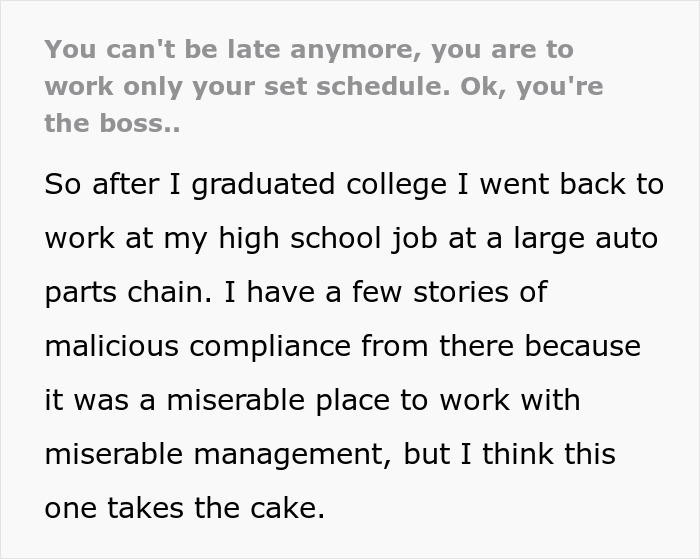

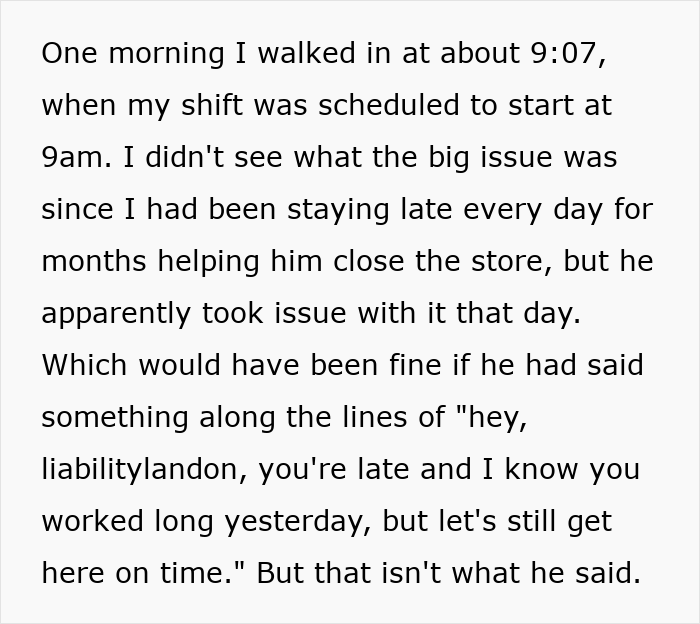
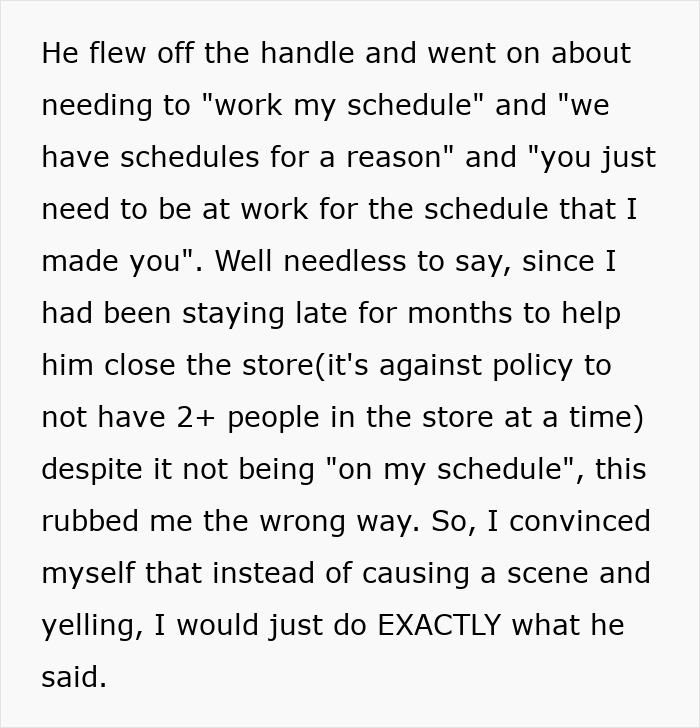
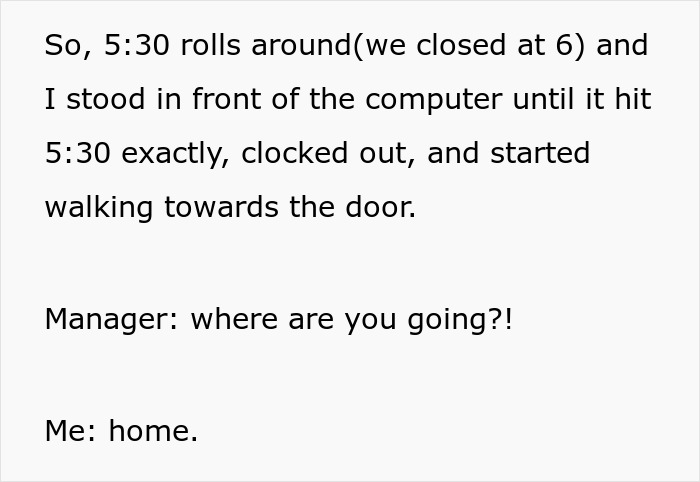
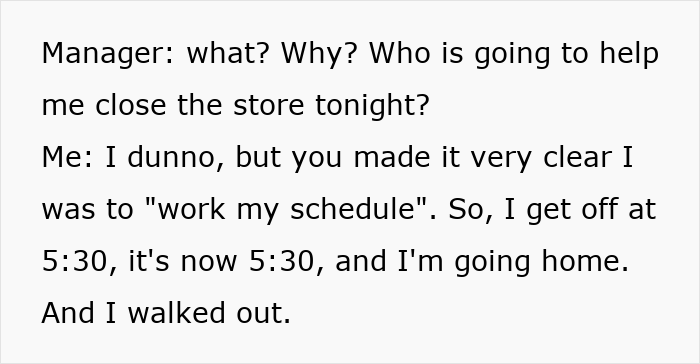

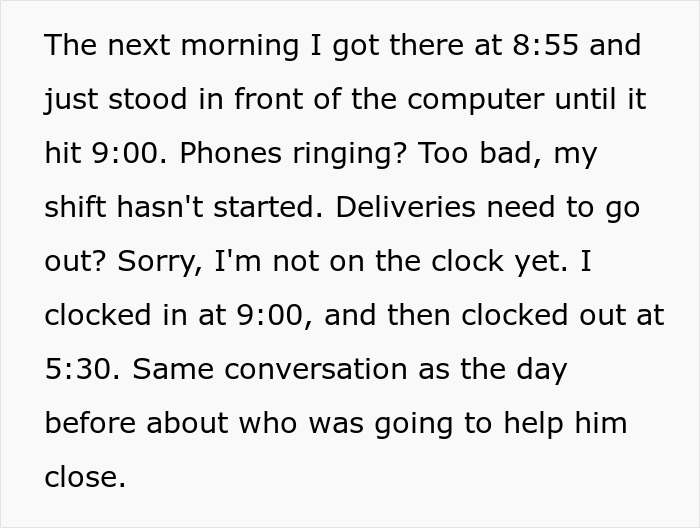
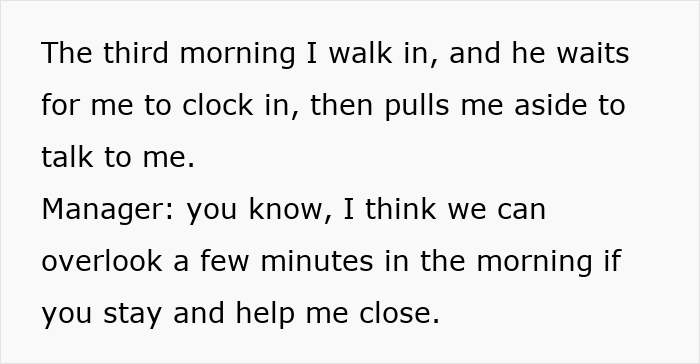
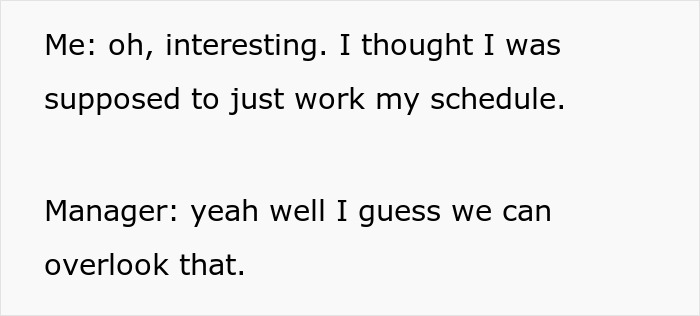

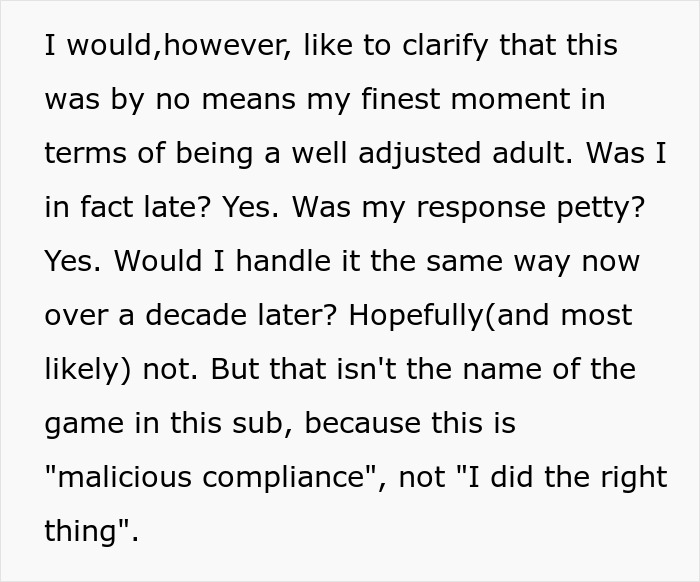

0 Comments